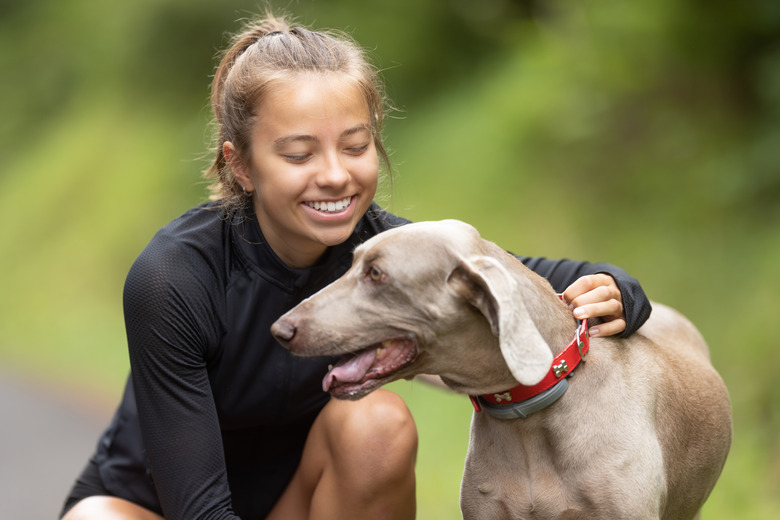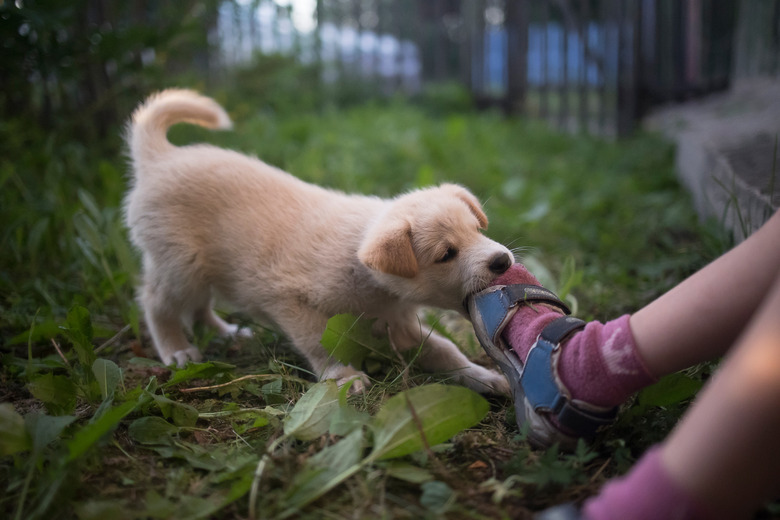Side Effects Of Clindamycin For Dogs
Clindamycin for dogs is available in capsules, tablets, or oral suspension liquid form. You may see it under the veterinary brand names Antirobe, Clintabs, and ClindaCure. It is an antibacterial agent that slows the growth of bacterial proteins and supports the body's white blood cells as they work to kill the infection.
Used to treat periodontitis, gingivitis, dental infections or abscesses, osteomyelitis, dermatitis, skin infections, bite wounds, abscesses, post-surgery and respiratory infections, pneumonia, and soft tissue infections, Clindamycin, when prescribed by your veterinarian, is usually a safe and effective medication, but it can cause side effects in some dogs.
Possible gastrointestinal side effects in dogs
Possible gastrointestinal side effects in dogs
Dogs absorb oral Clindamycin more quickly if it is given on an empty stomach, but giving the medication with food won't reduce how much of the drug your dog will absorb. The most common and unpleasant side effects of Clindamycin are gastrointestinal and can be lessened by giving it with food. This includes stomach pain, nausea, vomiting, and diarrhea that may be bloody or watery.
If you are giving your dog tablets or capsules, they can become lodged in the esophagus, leading to uncomfortable and potentially dangerous ulcers forming. For this reason, Clindamycin pills and tablets should always be given to dogs and cats with food or water.
Contact your veterinarian if your dog develops any gastrointestinal problems after taking Clindamycin. They may recommend that you stop giving your dog this drug. If you miss a dose, don't try to make it up by giving your dog a double dose or two doses close together. Instead, just wait until the next dose is due and stick to the schedule.
Clindamycin can cause loss of appetite in dogs
Clindamycin can cause loss of appetite in dogs
Some dogs taking this drug will experience a decreased appetite or complete loss of appetite. This could also be accompanied by unwanted weight loss, especially if their appetite is impacted for a longer period.
Side effects in dogs related to other illnesses
Tell your veterinarian if your pet has any history of severe kidney or liver disease, colitis, asthma, eczema, or allergies causing skin reactions. Clindamycin should be used with caution in atopic dogs, which are dogs with allergies that cause skin problems.
Liver enzymes may become elevated with Clindamycin use, so this antibiotic is contraindicated for dogs with kidney and liver problems. A different drug would be a better choice, but if this is not possible, your veterinarian will probably insist on monitoring blood levels of Clindamycin to be sure the dog does not overdose. Clindamycin manufacturers recommend blood tests of liver and kidney function for all dogs using Clindamycin for longer than a month.
Potential allergic side effects in dogs
Potential allergic side effects in dogs
Clindamycin should not be used in animals who have shown sensitivities or are allergic to the drug. It should not be given to dogs who are allergic to azithromycin or lincomycin; however, the latter is an older drug that isn't commonly used today.
Call your veterinarian if the dog does not improve or worsens after receiving treatment for a couple of days. Stop giving Clindamycin and seek emergency veterinary medical help if your dog exhibits symptoms of serious allergic reaction to Clindamycin, such as facial or mouth swelling, hives, scratching, difficulty breathing, a sudden occurrence of diarrhea, vomiting, shock, seizures, pale gums, cold extremities, or coma.
Side effects in dogs related to pregnancy and nursing
Clindamycin may cross the placenta if given to pregnant dogs. The drug can also be transferred in the milk of lactating mother dogs and may cause diarrhea, leading to dehydration in nursing puppies.
Avoid possible drug interactions
Avoid possible drug interactions
There are certain pet medications that should not be used in conjunction with Clindamycin. They may lessen the effectiveness of one or both medications. In some cases, these drug interactions could lead to serious complications.
Drugs to avoid giving your dog when taking Clindamycin include:
- Erythromycin
- Aminophylline
- Ranitidine HCl
- Ceftriaxone sodium
- Chloramphenicol
- Opiates
Other serious side effects to watch for in dogs
Other serious side effects to watch for in dogs
Stop giving your dog Clindamycin and contact your veterinarian immediately if your dog experiences side effects such as fever, chills, achiness, jaundice, dark urine, or reduction of urination. If you notice an adverse reaction not on this list while your dog is taking the medication, contact your veterinarian immediately.
Your dog may dislike Clindamycin
Your dog may dislike Clindamycin
Oral Clindamycin in liquid form has a bitter taste, and some dogs will start drooling excessively and refuse to take it. Although Clindamycin liquid does not require refrigeration and can be kept at room temperature, you may wish to refrigerate it to improve the taste. Make sure your dog has plenty of water to drink when taking Clindamycin regardless of whether you are giving a pill, tablet, or oral liquid.
Possible overdose side effects in dogs
Possible overdose side effects in dogs
Symptoms of a Clindamycin overdose include vomiting, appetite loss, weight loss, depression, behavior changes, or seizures. Don't try to make up a dose if you miss one, as this could increase the risk of overdose. Instead, just wait until the next dose is due and give your dog the normal amount. If your dog shows signs of an overdose, immediately contact your veterinarian or an emergency veterinary hospital.
The bottom line
The bottom line
Clindamycin is a broad-spectrum antibiotic that can help your dog's body to fight off bacterial infections. The most common side effects associated with Clindamycin are gastrointestinal problems including stomach pain, nausea, vomiting, watery or bloody diarrhea, or loss of appetite. Pay careful attention to any changes in behavior or signs that your dog may be feeling ill while taking this drug. If you notice that something is off, contact your veterinarian as soon as possible.




